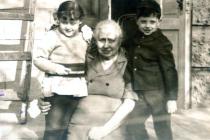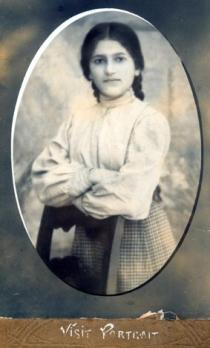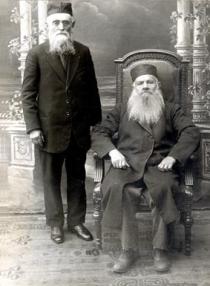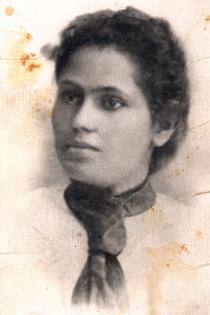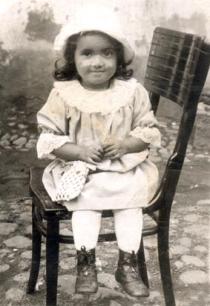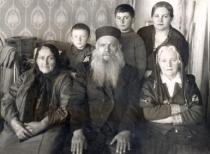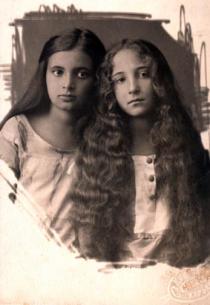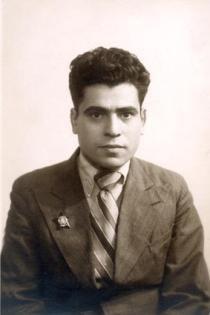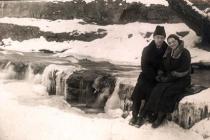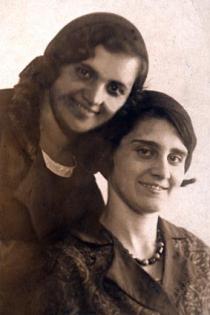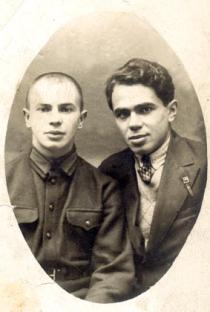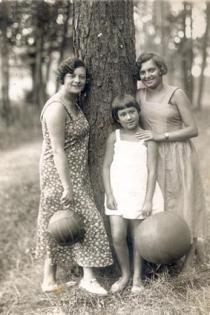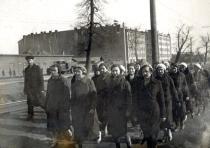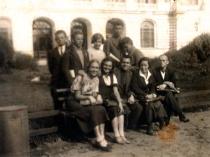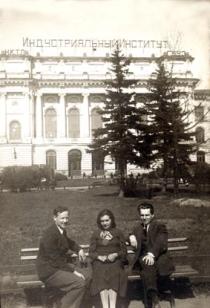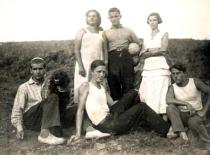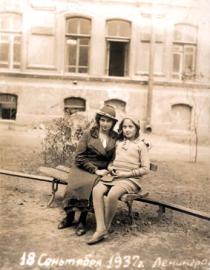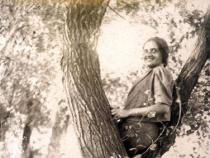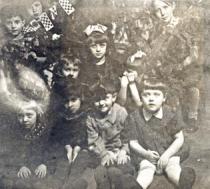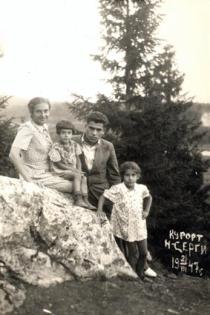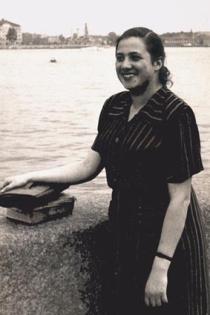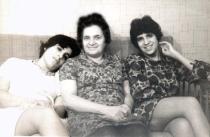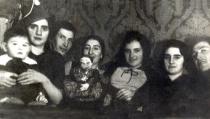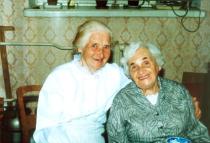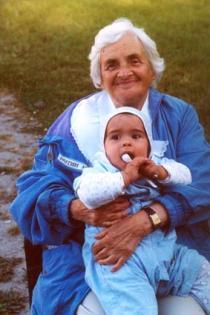Here you can see me together with my husband and daughters in Noviye Sergi, where we spent vacation in 1947.
I got acquainted with my husband Mikhail Borukhzon at our College (he was 2 years older than me). He was born in 1914 in Ukraine (in Varnavitsi shtetl). Later his parents together with him moved to Vinnitsa [a town in Ukraine]. His father's name was Akiva, and I do not remember his mother's name. In Vinnitsa he finished a Jewish technical school, where he studied Yiddish. He knew Yiddish very well and considered it to be his mother tongue. We got married after graduation from the College, in 1939. I worked at the PROMTRANSPROEKT institution [a designing organization for transport industry]. In 1940 my Mom died. Our elder daughter Mara was born in 1941. In summer of 1941 we rented dacha near Tosno [a suburb of St. Petersburg]. At that time Daddy worked in Tosno, and my husband worked in Kolpino. War burst out when my elder daughter was about 5 months old. We left almost everything and managed to escape before Germans occupied Tosno. We went to evacuation with my sister (she was 13 at that time), my baby daughter and my Daddy.
War burst out when my elder daughter was about 5 months old. We left almost everything and managed to escape before Germans occupied Tosno. We went to evacuation with my sister (she was 13 at that time), my baby daughter and my Daddy.
We went from Tosno in a heated goods van. [A heated goods van was a freight car adapted for transportation of people.] There were two-tiered plank beds in the van. Emotional shock resulted in disappearance of my breast milk, therefore it was necessary to take it from special canteens on our way, warm it and give to my daughter. We arrived in Perm. Initially we had to go to Chelyabinsk with my factory coworkers, but we went to Perm, because our neighbor and her family had moved there earlier and wrote us that it was very good to live there. At first we could not find her there, but then I met her near the railway station by chance. She took us to her place for a while. Not to lose touch with my husband, we decided that he would write us to Perm (to be called for).
At the special canteen I received milk, porridge, kissels, etc. It was enough to feed both my daughter and my sister.
Later I became a school teacher. I taught drawing. At the school lunchroom I used to take meals (they had very good products: different sausages, second courses, etc.). I brought meals home and we ate it. At that school I worked till spring of 1942, but then we had to leave for Sverdlovsk. It happened because my husband was transferred from Izhorsky plant [a large diameter pipes plant] to Uralmash [a heavy machine production facility]. He visited us in Perm on his way to Sverdlovsk, but he could not take us with him at that moment. So we moved to Sverdlovsk when he settled in the new place. His apartment was very small, but later we received a new room in the attic. At that time all attics were equipped for habitation. Our room was about 16 square meters large and we lived there five together.
We returned to Leningrad and at first I did not work, but later I started working and at last came to PROMTRANSPROEKT and worked there until my retirement on pension. My elder daughter became a schoolgirl. Daddy went on working (he died in 1952). And my sister studied at a college. Later she got married to a Jew. His name was Vladimir and by now he already died. Vsevolod was the only son of them. My sister taught English language at the Radio Polytechnical School.
We always tried to bring our children up in the spirit of culture, to make them useful for our society. We often visited concerts at the philharmonic society, different museums and observed all holidays with great pleasure (including Jewish ones: we even made matzot ourselves).
After school my elder daughter Mara entered the College of Intercommunications named after Bonch-Bruevich. There she got acquainted with her future husband. Later they worked together at a plant. And my younger daughter Lubov entered the Radio Engineering Technical School fi1. Later Lubov became a musician: she graduated from the Conservatory. Her husband Yakov Gull is a research worker in the sphere of biology. My daughters had got one son each. Mara's son is a musician (a violinist), and Lubov's son is a museum worker. My elder grandson had got 2 children (a son and a little daughter), and my younger grandson had got 1 son. So I have got 3 great-grandchildren.

